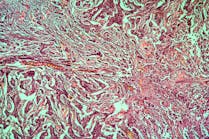Evidence from a small-scale clinical trial suggests that a variation of the advanced blood cancer immunotherapy known as CAR-T could be adapted to treat myasthenia gravis, an autoimmune disorder of the nervous system.
The modified CAR-T therapy, short for chimeric antigen receptor T-cell, used by scientists offers the potential for a longer-lasting reduction in myasthenia gravis symptoms and was well-tolerated without significant adverse effects. The study, published in The Lancet Neurology, was supported by a small business grant from the National Institute of Neurological Disorders and Stroke (NINDS), a part of the National Institutes of Health, and sponsored by Cartesian Therapeutics, Gaithersburg, Maryland.
In the study, 14 people with generalized myasthenia gravis received varying doses of a modified form of CAR-T therapy, known as Descartes-08, targeting the cells responsible for producing myasthenia gravis-causing antibodies. The ideal dosage was determined to be once weekly for six weeks. Early data on the effectiveness of the treatment are promising, but additional clinical studies are needed to evaluate the therapy’s efficacy. Three patients receiving Descartes-08 showed complete or near-complete elimination of their symptoms, which continued six months following treatment. Two others no longer required chronic intravenous immunoglobulin treatment, which is currently used in some severe MG cases.





